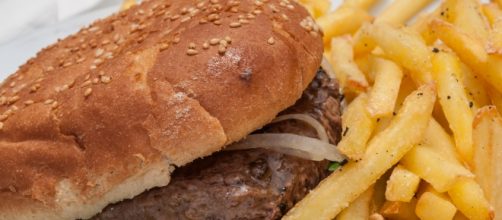Food waste has a significant effect on the planet according to a new study. We produce more food than we need. Not only does producing the food lead to an increase in greenhouse emissions, the food we discard every day also puts pressure on our planet. The study suggests a more sustainable approach to food production and adjusting our consumption.
The environmental impact of food production
The climatarian diet takes into account whichfood has the least impact on the environment. Meat causes significantly higher emissions of carbon dioxide than plant-based foods.
Beef and lamb are particularly high, with carbon emissions of 60-70kg per kg compared with less the 10kg of carbon dioxide emitted per kilo of pork or poultry.
Why is that?
- Grazing cattle require more energy and feed. They also produce more waste, which equates to methane gas in the environment.
- A by-product of animal feed is nitrous oxide, which comes from both the fertilizers and the manure. This is 100's of times more potent than carbon dioxide.
- Beef production is the least sustainable of all livestock, requiring 28 times more land and 11 times more water. Compare this to crop production, such as wheat and rice, which requires 160 times less land and 8 times less water.
- Beef production causes 5 times more carbon dioxide emissions that other livestock and 11 times more than plant-based foods.
The most sustainable and environmentally friendly diet
According to the Climates Network, a vegan diet is best for the planet.
This means it has the least impact on the environment in terms of food growth, production and waste.A vegetarian diet that includes dairy and eggs is not as climate friendly as a diet that leaves out cheese but includes chicken.Adding fish to a vegetarian diet has a moderate increased impact on climate of just 2.5%. However, farmed fish welfare and PCB concerns make fish consumption a controversial area.
The advice is to eat sustainable fish only.
How to make a change
If a vegan diet is not for you, try to cut back on red meat and if you do choose to eat it, go for the highest welfare, organically farmed and free range options.
What to avoid
- Air freighted foods
- Frozen foods
- Processed meats
- Food waste
Instead, buy local produce and eat seasonally as much as possible.

